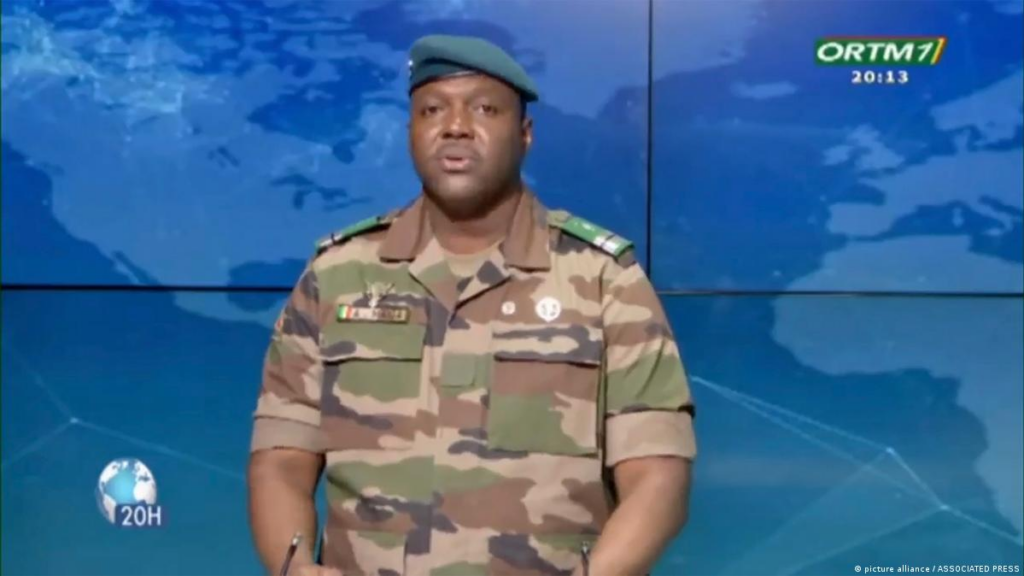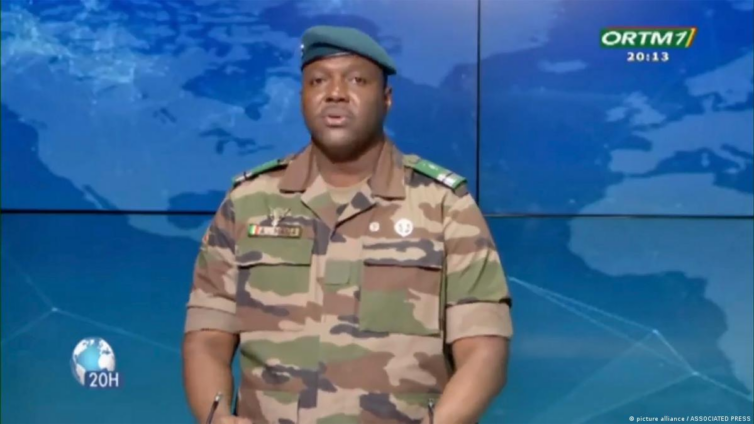The 2015 Algiers Accord brought stability to the north of the country as jihadist violence was on the rise. The military took control of Mali following two coups in 2020 and 2021.
The military rulers of Mali have ended a major peace deal with Tuareg separatist rebels in the north of the country, government spokesperson Colonel Abdoulaye Maiga said in a televised statement on Thursday.
Maiga said the government "notes the complete impossibility of the deal… and in consequence announces its end, with immediate effect."
Rebels, grouped under the Coordination of Azawad Movements (CMA), had already accused the government in Bamako of "abandonment" of the peace deal in July 2022.
What was the peace deal?
The Algiers Accord was signed in 2015 with support from the UN. It had been considered an essential agreement to maintaining stability in the region that has seen a flare-up of jihadist violence since 2012.
The agreement aimed to see ex-rebels integrated into the national army and allowed for more autonomy for the various regions.
Mali's junta blamed a "change in posture of certain signatory groups" as well as "acts of hostility" from Algeria, the peace deal's main mediator.

Tensions have been increasing between Mali and Algeria, with the former accusing the latter of "interference" and "unfriendly acts."
Mali's government summoned the Algerian ambassador in December last year, saying that the diplomat had held meetings with the Tuareg separatists.
Violence and instability in Mali
There were already signs of the deal coming apart when fighting broke out between Mali's military and the separatists in August last year.
The West African country has undergone two coups since 2020, leading to military rule and a fallout with Western powers that had been present in Mali as part of a counterinsurgency operation.
The junta ordered UN peacekeeping troops to leave the country, as well as French troops who had been fighting insurgents in the north of Mali.
Their departure has been seen as an instigator for the upsurge in violence as both the government and separatist groups raced to fill up the vacuum.
Latest Stories
-
Diplomatic Corps hail Bawumia’s integrity and leadership qualities
22 minutes -
To chocolate, Ghana’s pride by Bioko
40 minutes -
Chartered Institute of Bankers, Ghana, confers Honorary Fellow status on Victor Yaw Asante
1 hour -
BoG marks end of year with Thanksgiving Service
1 hour -
Ghana’s Next Sports Minister: The Debate Begins
2 hours -
Election 2024: NPP advised to be mindful of the reasons being ascribed to their election lost
2 hours -
GNFS urges Ghanaians to prevent fires during yuletide
2 hours -
Report tobacco users who smoke publicly – FDA advises
2 hours -
Abdallah Ali-Nakyea elevated to Associate Professor at UG School of Law
3 hours -
Kick2build commissions 5 libraries in Klo Agogo, donates school supplies
3 hours -
Slim and Fit Ghana donates to kids at Motherly Love Orphanage in Kwabenya
3 hours -
We’ll be reorganising ourselves for the battles of tomorrow – NPP
3 hours -
Ghanaian teacher Morkporkpor Fiador’s GWR Read-A-Thon attempt postponed
3 hours -
Revocation of licences of UT, Capital banks were strict requirements from IMF – Dr. Addison
3 hours -
MP Cynthia Morrison among 280 members expelled by Agona West NPP
3 hours

